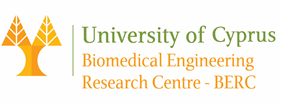“It is much more important to know what sort of a patient has a disease than what sort of a disease a patient has.”
William Osler (1849-1919)
Precision medicine is an approach to disease diagnosis, treatment and prevention that seeks to maximize effectiveness by taking into account individual variability in clinical presentation, history, genes, environment, and lifestyle. Precision medicine aspires to redefine our understanding of disease onset and progression, treatment response, and health outcomes through the more precise quantification of the individualized factors that contribute to health and disease. Such an understanding will lead to more accurate diagnoses, more rational disease prevention strategies, better treatment selection, and the development of novel therapies.

Current clinical research paradigm. Research is performed in scientific silos attempting to form a consensus based on cohort responses and one-size-fits-all approaches, often with little feedback between different research blocks. Τhe simply stated goal of tailoring diagnosis and treatment to the individual characteristics of a patient, hides much complexity with considerable challenges that must be addressed. One of the factors hindering the progress of precision medicine is the lack of crucial technologies which have not been developed in pace with the advances and the ever increasing information of the clinical and biological understanding of disease. The fact that progress is slow and the success stories limited is not due to any fundamental flaw in the central dogma of precision medicine but is rather a sign of its infancy, while at the same time it highlights the immense opportunities in this area. It is also a sign that new approaches are needed to stimulate further and faster development.

The proposed integrated research paradigm where multifactorial, multimodality, multiscale data are generated and integrated to be investigated by interdisciplinary teams based on feedback from stratified populations. The proposed Centre aims to establish a complete ecosystem, which will nurture interdisciplinary convergence and integration and provide enabling infrastructure, leading to the identification of common targets and a focused effort to create the technologies (hardware and algorithms) necessary to overcome some of the current hurdles of imprecision leading to the desired precision in medicine. The theme of the proposed Centre is not only scientifically exciting and clinically relevant, it is also very timely. Over the last decade, scientific knowledge and technological innovations (e.g. -omics, imaging, sensing, ICT, mobile technologies) have matured to the point where the stage is ready for the next technological breakthroughs that will enhance and support precision medicine.
